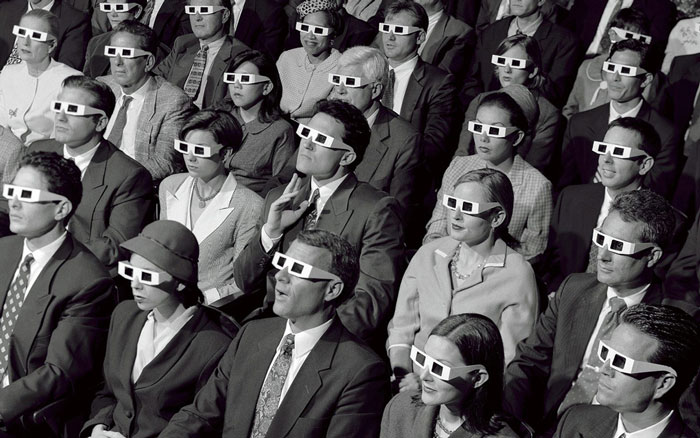Have you ever walked out of a movie in which the audience clapped raucously as the credits rolled, only to have your friend turn to you and ask, “What’s the point of clapping? It’s not like the cast or crew can hear the applause anyway.” If you’re anything like me, you’d respond to this comment by muttering “what a fucking twat.” To be honest, I can’t remember the last time I’ve heard clapping after a movie. A quick Google search confirms that this idea is commonplace, but not that it happens all that often. “Do people in the U.S. really clap after movies?” asks a confused Redditor, while angry internet bloggers echo the same sentiment my make-believe friend said above: Why clap at a movie when the people supposedly receiving the symbol of appreciation are unable to hear it? The answer is simple: Clapping is far more than showing appreciation, it’s an expression of emotion shared by everybody in the theatre–a recognition of the shared experience of the film.
At the theatre, applause and standing ovations show appreciation to the cast and crew who stand on stage and bow accordingly. If the only use of applause is to convey appreciation, then clapping after a movie is pointless. But applause is not a solely outward gesture, like the obligatory head nod to a vague acquaintance you pass on campus. Standing ovations spread through a theatre, one person stands, then another, and another. The gesture of appreciative applause is more emanating than transmissive—the audience, cast, and crew walks away feeling like they are part of something larger than themselves, and clapping in unison as a group confirms it. While theatres and cinemas are typically quiet affairs, sports events offer a magnified example of cheering to show group identity. When someone yells out, “Are you blind, ref?” it would be remarkable if the referee turned around and actually responded, “Why yes, I forgot to put my contacts on this morning and I’ve just been bullshitting this entire game!” Comments like these aren’t meant as literal advice for the referee, but as a gesture of solidarity with fellow fans upset by the call. Applause and questions like that are entirely rhetorical in nature, they affirm the obvious: “That was a great film,” or “that was a bad call.”
It isn’t surprising, then, that most of the films people report clapping at are films with strong cult fan bases. The Lord of the Rings movies, Star Wars and The Dark Knight series are all hotbeds for post-movie applause. While the “group” isn’t as identifiable without the colour-coded apparel of a sports game, the message is clear: “Pretty good movie, eh?”
Movie theatres are odd social spaces. One sits in a room with several dozen strangers, entirely in silence. Additionally, film as a genre is moving toward greater viewer immersion. The expansion of 3D and VR draws viewers into the film itself and away from the theatre environment. Increasing viewer participation has been tried and discarded with the failed idea of smell-o-vision (Rugrats Go Wild 2003). But stalwarts of extreme audience participation have continued with screenings of The Rocky Horror Picture Show, in which audience members go so far as to bring props and dress up as characters in the movie. This would be excessive to do for every movie, but watching a film is a shared emotional experience—people resonate with the emotions of others. Laughter with a group is always louder than laughing alone—this is the lasting power of the cinema. Of course, there’s a line—one should not jeer constantly, standard rules of etiquette still apply. But if by the end of the film one feels like letting off some applause, give it a go and see how many people feel the same.










I actually have something called misophonia that occasionally causes me to have breakdowns and extreme emotional, nearly physical pain when I hear certain sounds. One of those sounds for me is clapping. I hate when people clap after movies because sometimes it causes these breakdowns. Let’s be real – the experience of watching a movie wouldn’t be any different whether people applauded at the end or not. Let’s think of people like me with conditions like misophonia and autism and stop doing this unnecessary crap.